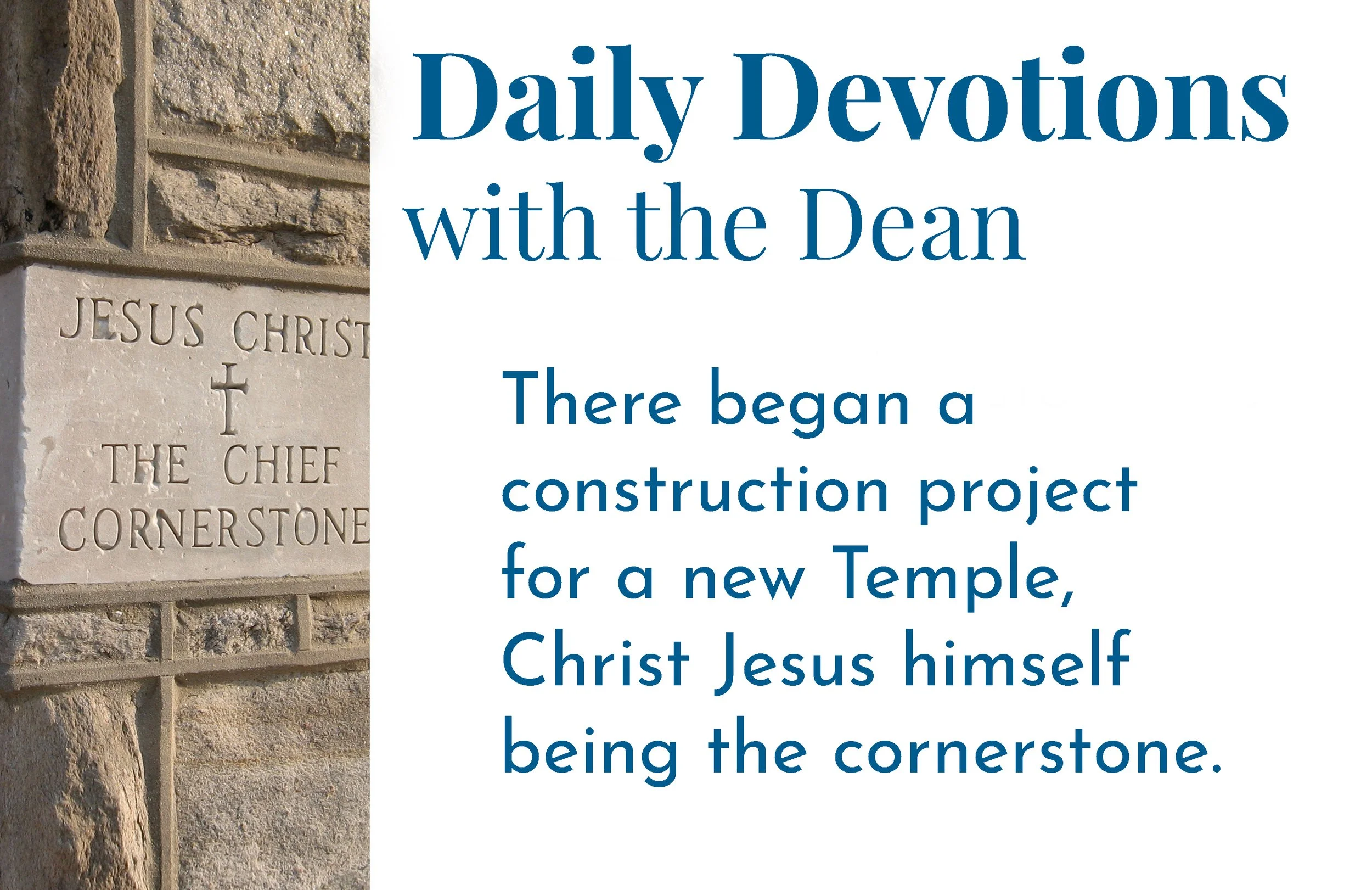Thursday • 7/7/2022
This morning’s Scriptures are: Psalm 18:1-20; Deuteronomy 3:18-28; Romans 9:19-33; Matthew 24:1-14
This morning’s Canticles are: following the OT reading, Canticle 8 (“The Song of Moses,” Exodus 15, BCP, p. 85); following the Epistle reading, Canticle 19 (“The Song of the Redeemed,” Revelation 15:3–4, BCP, p. 94)
An audio or video version of this devotional can be found here: Apple Podcast, Spotify Podcast, YouTube
Nobody should claim to have all the answers about the “end times.” All of the major New Testament passages are difficult, including Matthew 24 (the gospel readings for the next three days of the Daily Office). I offer here a paragraph I wrote for the chapter on Matthew in A Biblical-Theological Introduction to the New Testament: The Gospel Realized (Crossway, 2017). (This book is a one-volume commentary on the NT written by various professors of Reformed Theological Seminary. I contributed the chapter on Matthew). I think it provides perspective on Jesus’s teaching in this chapter:
Matthew 6 had dealt with the disciplines of religion: prayer, fasting, and trust. Matthew 24 deals with the housing of religion: for Jewish people, the Temple. In 24:1-26, 29-35 (where the language of “coming” [erchesthai] evokes the image of the Son of Man coming before the Ancient of Days in Daniel 7), Jesus explains the significance of the destruction of Jerusalem and the Temple. The heavenly conferral of authority to Jesus by virtue of his baptism, death, and resurrection, will have earthly consequences for the old administration: the destruction of the Temple. The disciples will see this “coming” to his heavenly authority happening because it will take some development — the disciples will have opportunity to prepare (24:15-26). In other verses, Jesus uses the language of “presence” (parousia, which the ESV [and the NRSV] unfortunately also translate “coming” — 24:27, 36-41) to refer to his (still to us) future return at the consummation of the ages. His parousia, he asserts, nobody will see in advance (24:27). The job is simple — be ready (24:36-51).
Today’s gospel passage is an explanation of Jesus’s assertion that “not one stone will be left here upon another; all will be thrown down” (Matthew 24:2). The apostles were witness to an epic transformation here on earth: with the handing of the keys of the Kingdom to Peter there began a construction project for a new Temple, Christ Jesus himself being the cornerstone, and the apostles and NT prophets being the foundation (see Ephesians 2:20).
That construction project left no room for the ongoing presence of the physical Temple that had once housed sacrifices. With Christ’s offering of “my blood of the covenant which is poured out for many for the forgiveness of sins” (Matthew 26:28), that Temple’s work was finished. That fact would be signaled in the rending of the veil in the Temple separating the Holy of Holies during Jesus’s crucifixion (Matthew 27:51). Not to put the point too finely, God himself would remove that Temple at the hands of the Roman army in AD 70. When, later in this chapter, Jesus says, “this generation will not pass away until all these things have taken place,” he is referring (I’m pretty sure) to the “coming” (erchesthai) of Jesus into the full authority of his identity as Daniel’s “Son of Man” when the earthly Temple is finally removed.
Jesus’s final “presence” (parousia) at the end of time we can’t predict—it will come suddenly (Matthew 24:27, 36-51). But the apostles could prepare themselves for life after the earthly Temple’s passing. Jesus will begin to build his church through their obeying his commission to “Go therefore and make disciples of all nations, baptizing them in the name of the Father and of the Son and of the Holy Spirit, and teaching them to obey everything that I have commanded you” (Matthew 28:20).
And that’s where we live, between Christ’s “coming” into his full authority at his ascension and his “presence” when, at the end of this gospel age, he returns in full glory and majesty. During this “between” time, the most important thing we could possibly be doing is contributing to the present expression of Christ’s rule on earth: a healthy church. Of the four gospel writers, Matthew is the only one who records Jesus using the word “church.” And for Matthew, it’s a place where forgiveness can be seen and not just imagined, where sinners (like you and me) and tax collectors (like Matthew himself) are welcome. It’s a place where love that mirrors God’s own heart is on display. It’s a “city on a hill” that can’t be hidden, where “good works” manifest the character of a loving heavenly Father.
Be blessed this day,
Reggie Kidd+
Image: "Jesus Christ - The Chief Cornerstone" by TheGoodReverend is licensed under CC BY-NC-SA 2.0.


